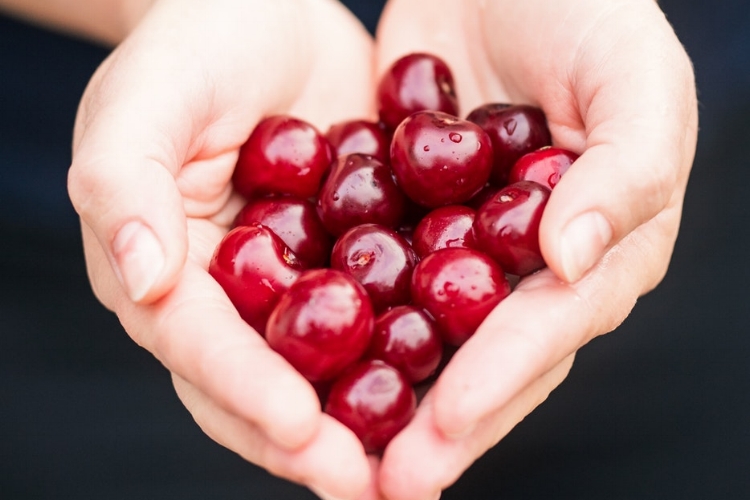We’re hard on ourselves.
About what we say.
About what we do.
About how our bodies look.
We’re especially hard on ourselves when it comes to what we eat.
We often push ourselves to eat certain foods and in a particular way. We then beat ourselves up when we don’t stick to our strict food and eating rules––on how our mind thinks we should eat, look like, be. You may think trying to enforce rules is the way to maintain control, but what you’re really doing is perpetuating your feelings of anxiety and inadequacy by constantly obsessing over food and questioning your self and self-worth.
Self-compassion has been linked to improved well-being and self-care, and practicing intuitive eating is one of many ways to practice self-compassion.
Self-compassion—which includes the following three essential elements—is the ultimate antidote to feelings of anxiety and inadequacy:
-
Kindness: showing empathy or understanding toward ourselves when we experience feelings of anxiety of inadequacy.
-
Common humanity: recognizing that our experiences of anxiety and inadequacy are part of a greater shared human experience—it’s something we all go through. You are not alone in feeling this way.
-
Mindfulness: experiencing a non-judgmental and curious state of mind that allows us to observe our thoughts, feelings, and experiences as they are, without trying to avoid or become over-identified with them.
Intuitive eating is the practice of listening to your body’s natural cues and wisdom to guide your food and drink choices. We’re all born with this intuition. Think of how, as babies, we cry when we’re hungry and stop when we’re full, but over time these senses become overridden by outside influences such as our parents (“Don’t eat that, sweetie, it’ll make you fat”); our culture (“Thin is in” or “Fit is the new healthy”); and our own mind (“Just one more bite” or “This tastes so good”).
As we form different associations with food (good versus bad foods), our eating habits change, and so we are not listening to our body’s needs. We may over-eat because we feel we can’t get enough, or restrict what we eat because we feel we lack self-control. We may even use eating or not eating as a way to self-regulate our emotions or as a form of reward, control or punishment.
“By changing the way we relate to our own imperfection and pain, we can actually change our experience of living.”
— Kristin Neff
Self-compassion and intuitive eating help you listen to and honor your body’s needs
As a Mindful Self-Compassion teacher, the quintessential question we ask in the program is “What do I need?” And one of the main principles of intuitive eating is listening to your body’s natural wisdom of what it needs for nourishment.
This practice of listening to what your body wants and needs, and letting it guide you to what to eat and when to eat is an act of self-compassion. Listen when your body says “Yes, this is what I want right now,” or “No, that doesn’t sound good to me right now.”
Mindfulness allows you to pay attention and attune to your body in the present moment without judgment as to whether it is good or bad, and respond appropriately to hunger and fullness, as well as to your emotions. The next time you’re in a restaurant, you might scan a menu, and then close your eyes and let your body be your guide in what you choose to eat.
Self-compassion and intuitive eating help you cope with your emotions in healthier ways
Practicing intuitive eating helps you distinguish between physical and emotional hunger. Self-compassion has been shown to increase open-heartedness, which gives you the ability to face your negative emotions and experiences with curiosity and care.
When you can identify what you’re feeling emotionally by bringing your attention to your emotions, you then have the choice of whether or not to use food to comfort, soothe, numb or punish yourself. You might also be painfully aware that when you have eaten emotionally in the past, you ended up feeling worse (albeit after some temporary relief), not better.
When you notice you are feeling negative and positive emotions, ask yourself what you need, the way you would ask a dear friend what they need. Maybe you just need to acknowledge that you are feeling kind of icky right now and allow yourself to feel it. Maybe you need some kindness like a hug or talking to your best friend because you are feeling this way. Remember no feeling is permanent; what you can feel you can heal; and no amount of food will ever fill a hungry heart.
Self-compassion and intuitive eating help foster body acceptance and self-acceptance
Sometimes you may feel that you are the only one who struggles with their body or nobody could really understand how you feel about your body.
With self-compassion, even though you may feel uniquely isolated in your body image struggles, we know you are not alone in feeling this way: most people have had some struggle with their bodies. Often, what is underlying body image dissatisfaction is the feeling of not being enough just as we are. What’s more, everyone experiences feelings that they aren’t enough in some way.
At the heart of intuitive eating, is the need to accept and respect the needs of your body and accepting yourself just as you are. Self-compassion can give you the emotional resource to turn toward the dissatisfaction you feel toward your body and yourself in a more kind and understanding way. Accepting your body as it is and yourself as you are, ultimately leads to making peace with your body and yourself. Your body has been working hard for you your whole life to take care of you. Isn’t it time you show it some appreciation for all it does for you rather than being at war with it? Your body is worthy of love just as it is, and you are worthy of love just as you are.
Self-compassion and intuitive eating leads to self-discovery and cultivating trust in yourself
Diet culture promotes judgment and self-criticism, while self-compassion and intuitive eating promote trust and respect, as well as caring for yourself the way you would care for someone you love.
Through intuitive eating, you will discover more about your body’s needs and develop a deeper understanding of how past attempts to control your body through dieting and rigid exercise has brought you misery–mentally, emotionally and physically. Because there are no rules, intuitive eating builds a habit of trusting your body by accepting and respecting your needs. As you let go of your food rules about what you “should” eat, you will begin to release the painful hold of temptation and guilt from eating foods you “shouldn’t” eat. Letting go of these rules that cause you pain is an act of self-compassion
Self-compassion opens the door for self-awareness that fosters understanding and further self-discovery about your habits, patterns and triggers. Research has shown that the more compassionate and understanding we are about our needs, the more likely we are to take care of ourselves. Self-care based on responding appropriately to your needs is self-compassionate.
Be patient with yourself
Practicing both self-compassion and intuitive eating is a journey with unexpected pleasures and challenges. You may experience discomfort when releasing the control you once placed on what you eat, or become upset when you have difficulty listening to your body.
Like any practice, it takes time to build the “muscle” of listening to your body’s intuition, especially if it’s been so long since you’ve treated your body with this type of kindness. Be gentle with yourself on this journey, you may find it becomes easier to hear those natural cues and find pleasure in food once again. You may also begin to celebrate the uniqueness of each body, including yours. What’s more, you may even begin forgiving yourself for being perfectly imperfect and become receptive to appreciating your good qualities.
To begin your self-compassion practice, sign up for my free guided meditation series which will help you develop a strong foundation of kindness and self-love.
Be sure to subscribe to my newsletter to find out more about how you can embrace your body, yourself and your life with more love and kindness or follow @kindfulbody on Instagram.



